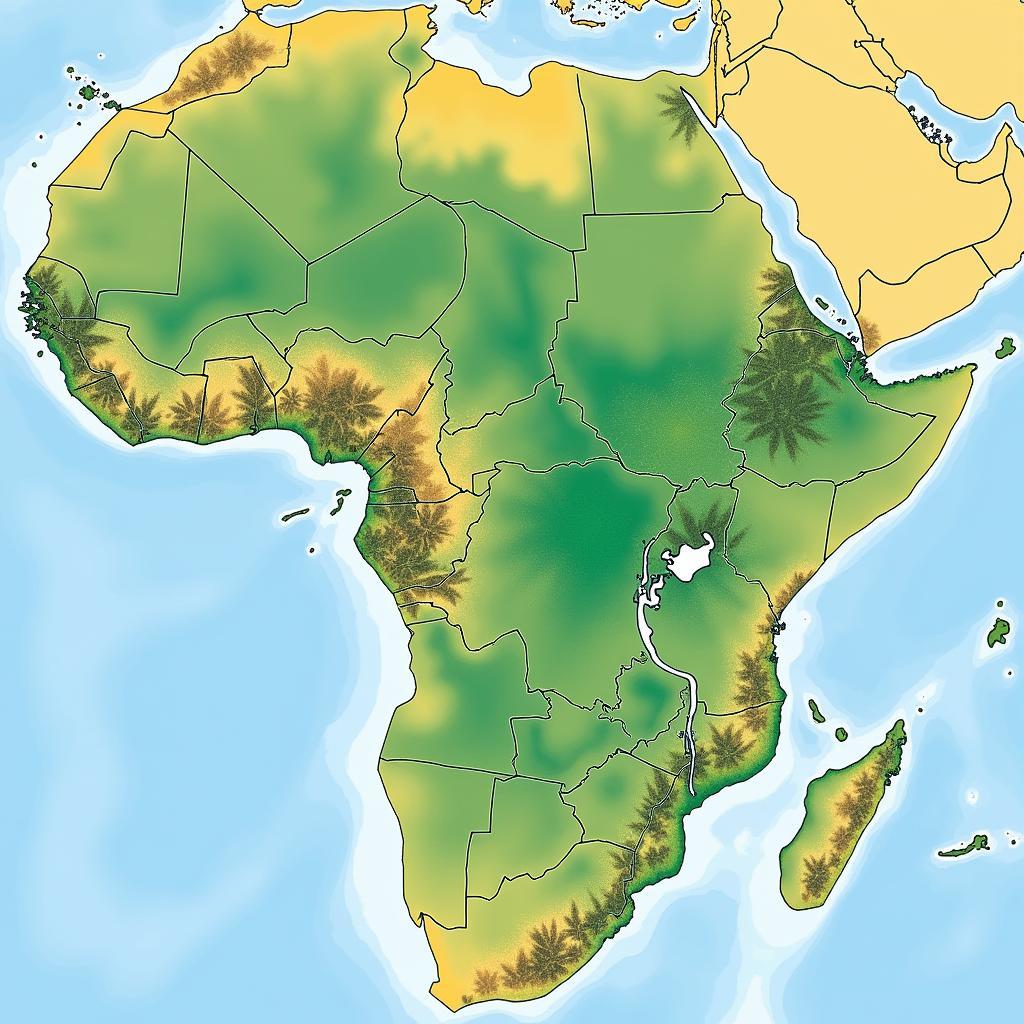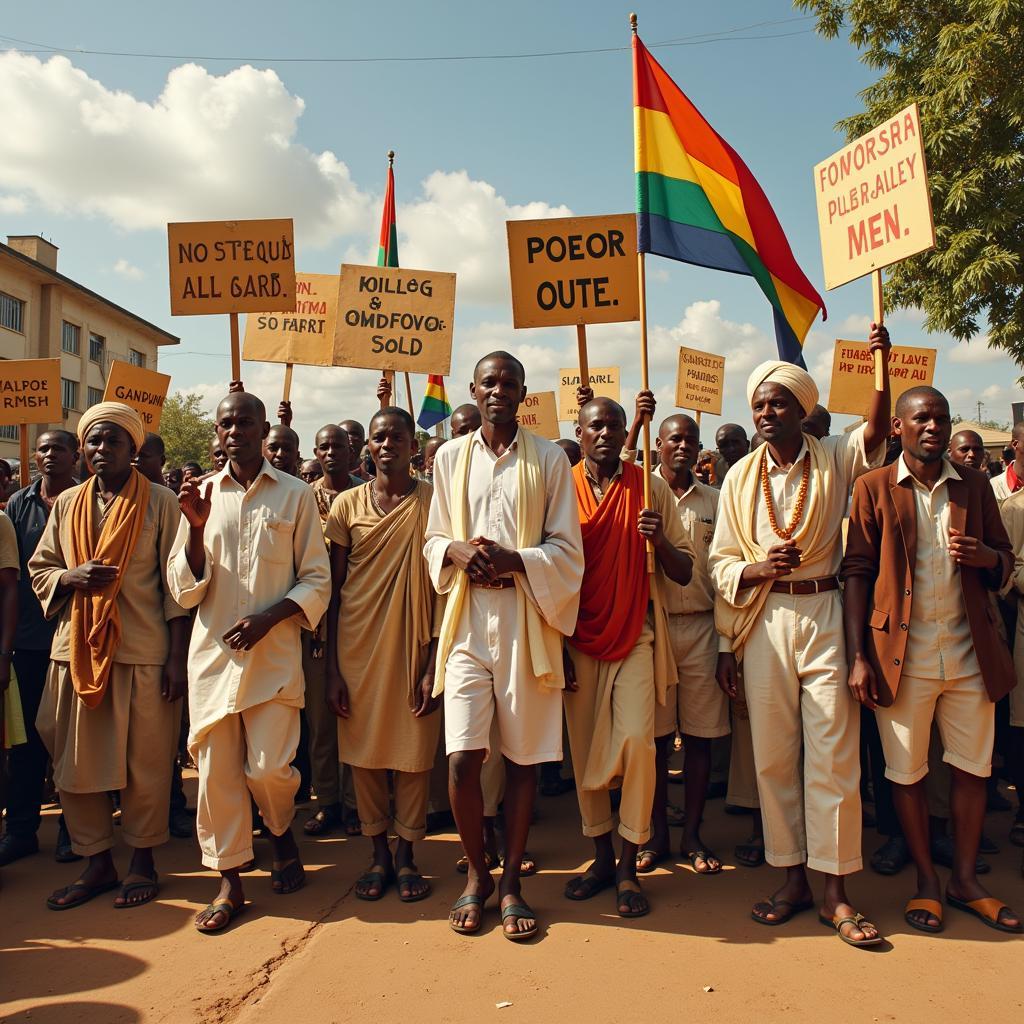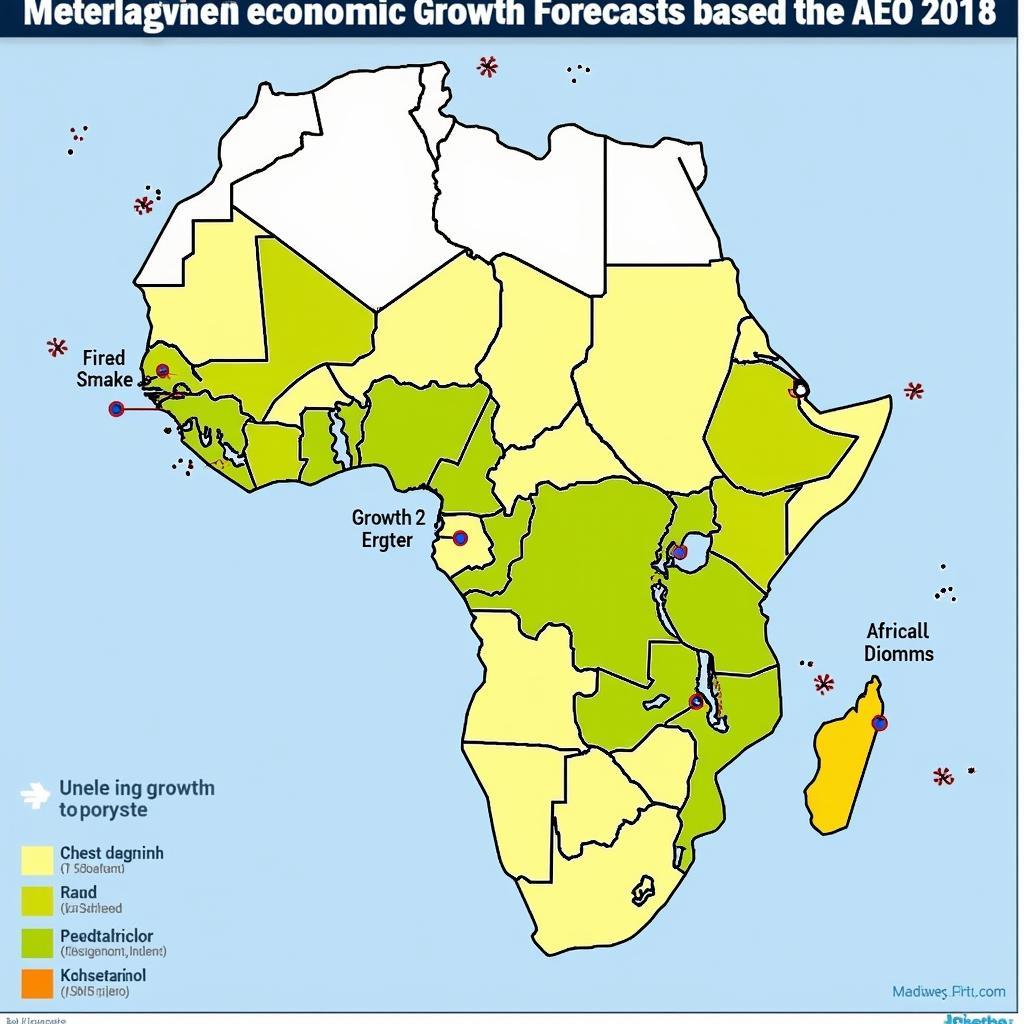Unraveling the “African American DNA Hoax”: Separating Fact from Fiction
The “African American Dna Hoax” is a term circulating online, suggesting that DNA testing for ancestry, particularly for African Americans seeking to connect with their African roots, is unreliable or even a deliberate deception. This article will delve into the complexities of this claim, examining the science behind DNA testing, addressing common misconceptions, and ultimately providing a clear picture of the potential and limitations of genetic genealogy for African Americans.
Understanding DNA Ancestry Testing for African Americans
African American genealogical research presents unique challenges due to the transatlantic slave trade, which often severed the documented link between individuals and their African heritage. DNA testing offers a powerful tool for bridging this gap, allowing individuals to gain insight into their ethnic origins and reconnect with their ancestral past. However, the nature of the slave trade, combined with the complexities of genetic inheritance, can make interpreting results more nuanced than for other populations.
How Does DNA Ancestry Testing Work?
DNA ancestry tests analyze specific markers in your DNA to compare them with reference populations from different regions of the world. These comparisons help estimate the percentage of your DNA that likely originates from various ancestral groups. For African Americans, these tests can often identify broad regional connections within Africa, such as West Africa, Central Africa, or East Africa.
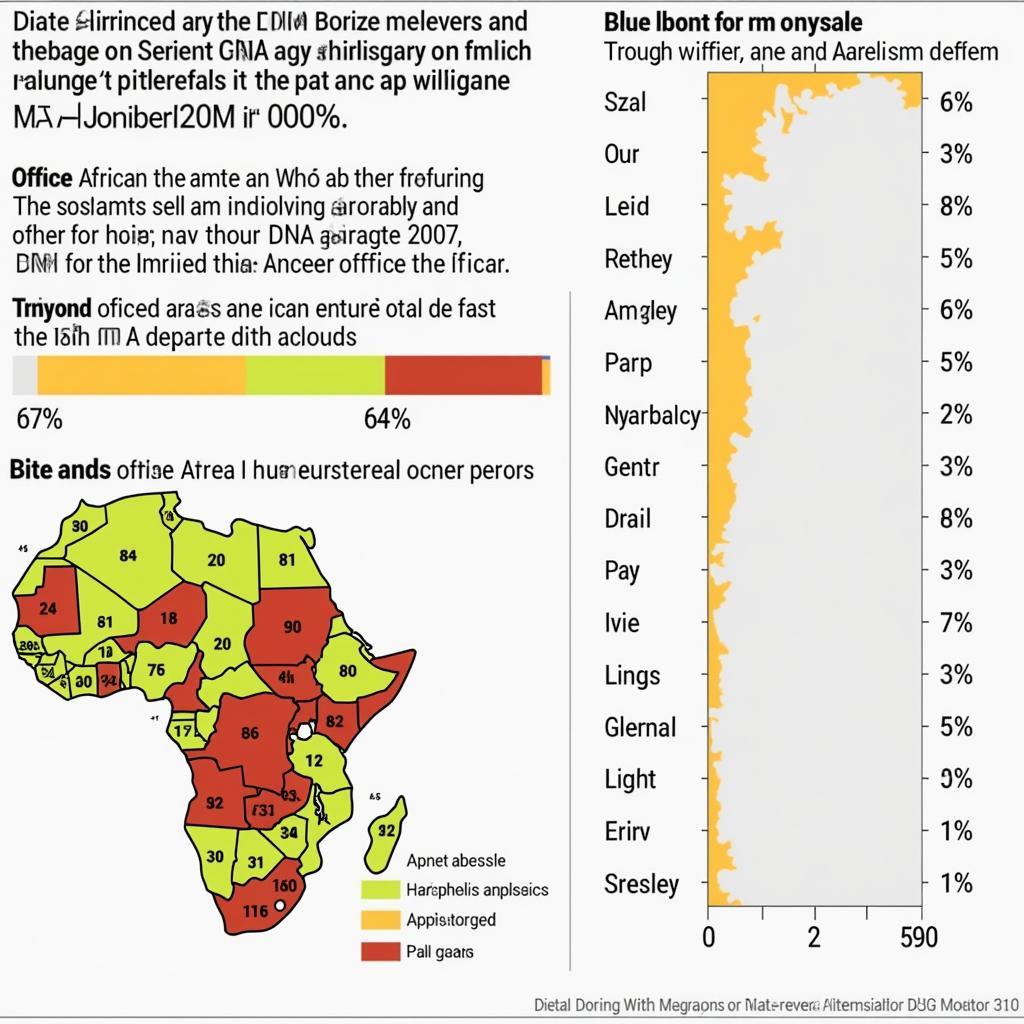 African Ancestry DNA Test Results Example
African Ancestry DNA Test Results Example
The “African American DNA Hoax” Narrative
The idea of an “African American DNA hoax” stems from several sources. Some individuals express skepticism about the accuracy of tracing ancestry back hundreds of years, particularly given the mixing of populations and limitations in historical records. Others raise concerns about the potential for bias in the reference databases used by testing companies, questioning whether they adequately represent the genetic diversity within Africa. Furthermore, the emotional weight of seeking one’s roots can sometimes lead to unrealistic expectations, which, if unmet, can fuel feelings of disappointment or distrust.
Debunking the Myths Surrounding African American DNA Testing
While some concerns about DNA ancestry testing are legitimate and warrant discussion, it’s crucial to distinguish between valid critiques and misinformation. The term “hoax” implies deliberate deception, which is generally not the case. Instead, it’s more accurate to frame the conversation around the limitations and complexities of the technology, along with the ethical considerations surrounding its use.
Limitations of DNA Testing
It’s essential to understand that DNA tests don’t provide a definitive “African tribe” or pinpoint location of origin. The results offer probabilities and estimates based on current scientific understanding and available data. This data is constantly being refined and expanded, so results can change over time as more information becomes available.
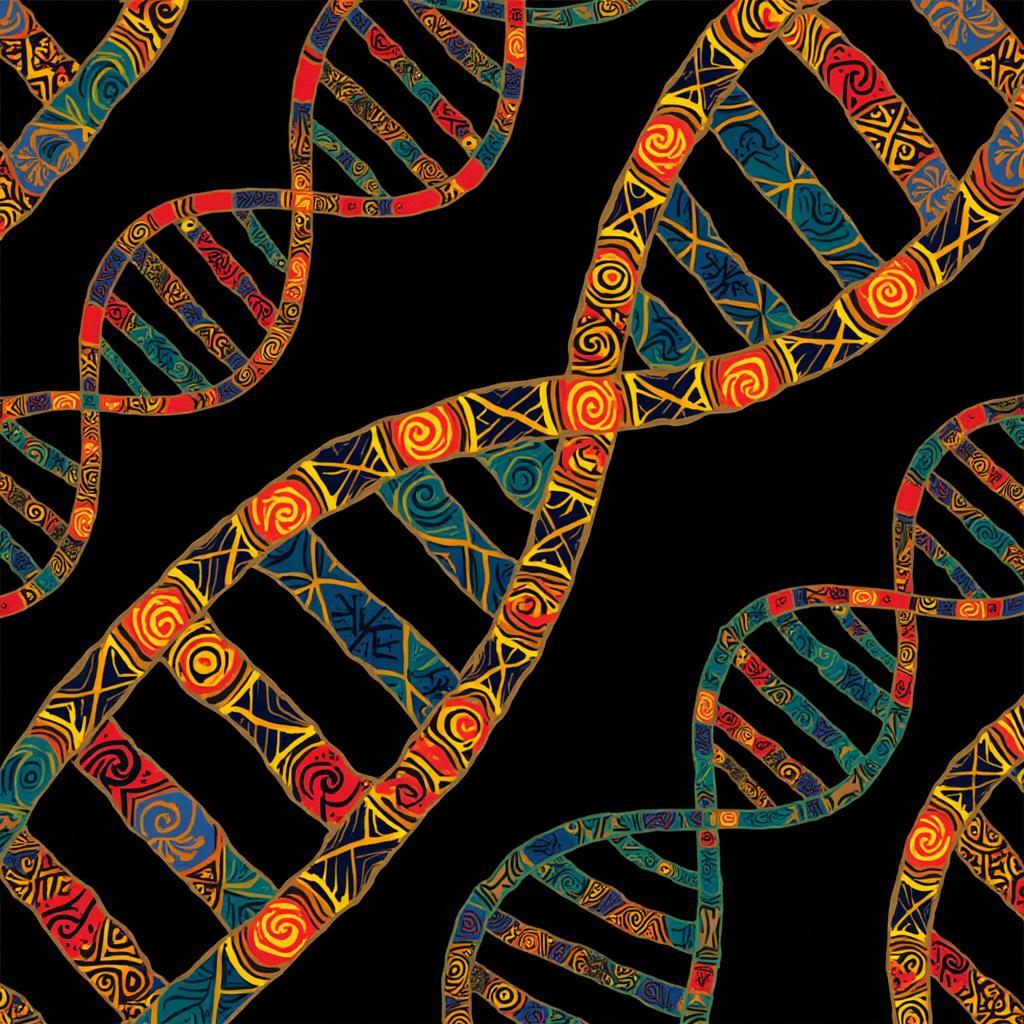 DNA Double Helix Structure Representing African Ancestry
DNA Double Helix Structure Representing African Ancestry
Addressing Concerns About Bias
Concerns about bias in reference databases are valid. The more diverse and representative the database, the more accurate the results. Reputable DNA testing companies are actively working to expand their databases and improve representation from diverse African populations, acknowledging the historical underrepresentation in genetic research.
What African American DNA Testing Can Tell You
Despite its limitations, DNA ancestry testing can be a valuable tool for African Americans seeking to explore their heritage. It can:
- Provide broad regional connections within Africa, helping individuals narrow down their ancestral origins.
- Connect individuals with living relatives who share similar DNA segments.
- Offer insights into migration patterns and historical connections.
- Contribute to a broader understanding of African diaspora populations.
“DNA testing, while not a perfect tool, offers a powerful starting point for African Americans on a journey of self-discovery,” says Dr. Anika Njau, a geneticist specializing in African populations. “It’s important to approach the results with a realistic understanding of the technology’s capabilities and limitations.”
Conclusion: Embracing the Power and Acknowledging the Limitations of DNA Testing
The “African American DNA hoax” narrative often oversimplifies a complex issue. While acknowledging the limitations and potential biases within the field is crucial, dismissing the entire practice as a hoax is misleading. DNA testing, when combined with historical research and genealogical resources, can be a valuable tool for African Americans seeking to connect with their African heritage. By understanding both the power and limitations of this technology, individuals can make informed decisions about its use and interpret their results in a meaningful and nuanced way. The journey of discovery may be complex, but the potential rewards are significant.
FAQs
-
Is African American DNA testing accurate?
- While DNA testing can provide valuable insights into ancestry, it’s essential to understand that the results are estimates based on current data and may not be completely accurate.
-
Can DNA testing tell me my specific African tribe?
- DNA testing can often identify broad regional connections within Africa, but pinpointing a specific tribe is often challenging due to historical migrations and population mixing.
-
How can I choose a reputable DNA testing company?
- Look for companies with transparent practices regarding their reference databases and data analysis methods. Research reviews and compare different options before making a decision.
-
What should I do after I receive my DNA results?
- Consider further research using genealogical resources and historical records to complement your DNA findings. Connecting with other individuals who share similar DNA segments can also provide valuable insights.
-
What are the ethical considerations surrounding DNA testing?
- Privacy and data security are important considerations when using DNA testing services. It’s essential to understand how your data will be used and protected.
 African American Family Exploring Heritage Through DNA Testing
African American Family Exploring Heritage Through DNA Testing
-
What other resources are available for African American genealogical research?
- Historical records, census data, and oral histories can complement DNA findings and provide a richer understanding of your family history.
-
How can I learn more about the history of the transatlantic slave trade?
- Numerous books, documentaries, and museums offer valuable information about the history of the transatlantic slave trade and its impact on African diaspora populations.
Looking for more information about African culture and history? Check out our articles on [link to another related article] and [link to yet another related article].
Need further assistance with your African American DNA research? Contact us at Phone Number: +255768904061, Email: [email protected] or visit us at Mbarali DC Mawindi, Kangaga, Tanzania. We have a 24/7 customer service team ready to assist you.
